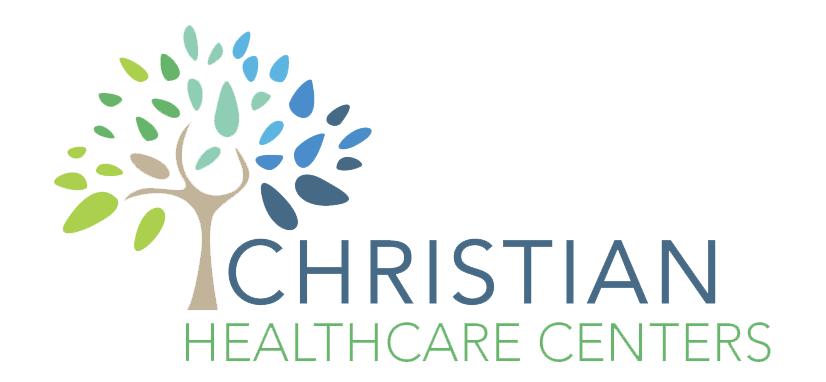Are you looking for a comprehensive approach to preventive care? Well-woman exams are the answer.
Discover what to expect during these exams and how Christian Healthcare Centers can support your health journey. With accessible and compassionate care, they are dedicated to serving women in need.
Let us guide you through the importance of well-woman exams and how Christian Healthcare Centers can help you prioritize your well-being.
Key Takeaways
- Well-woman exams are crucial for preventive care and focus on early detection and prevention of health issues.
- Christian Healthcare Centers provide accessible and affordable well-woman exams, addressing women’s unique needs and concerns.
- These centers prioritize women’s health education, offering programs, resources, workshops, and collaborations with community organizations.
- Christian Healthcare Centers recognize the importance of emotional well-being and offer counseling services, support groups, and resources for mental health.
The Importance of Well-Woman Exams
You must understand the importance of well-woman exams in ensuring your overall health and well-being. These exams are a crucial part of preventive care for women, focusing on early detection and prevention of various health issues. By prioritizing regular well-woman exams, you’re taking a proactive approach to your health and empowering yourself to make informed decisions about your well-being.
Well-woman exams encompass a comprehensive evaluation of your reproductive health, including breast and pelvic exams, Pap smears, and screenings for sexually transmitted infections. These exams allow healthcare providers to detect abnormalities or potential health risks early on, increasing the chances of successful treatment and minimizing potential complications. They also allow you to discuss concerns or questions with your healthcare provider.
Moreover, well-woman exams aren’t just limited to reproductive health. They also include important screenings for chronic diseases such as high blood pressure, diabetes, and cholesterol levels. By monitoring these essential aspects of your health, you can work towards preventing or managing these conditions effectively.
It is crucial to prioritize well-woman exams, which are vital in maintaining your overall health and well-being. By identifying potential health issues early on, you can take necessary steps to prevent them from progressing into more serious conditions. Additionally, these exams allow you to establish a trusting relationship with your healthcare provider, fostering open communication and personalized care.
What to Expect During a Well-Woman Exam
During a well-woman exam, healthcare providers will thoroughly assess your reproductive and overall health, ensuring comprehensive preventive care. This exam is designed for women, focusing on their unique healthcare needs. It’s an opportunity to discuss any concerns or questions you may have with your healthcare provider, ensuring that you receive the appropriate care and guidance.
During the exam, your healthcare provider will take your medical history, including any previous surgeries, medical conditions, and medications you’re taking. They’ll also ask about your family history, as certain conditions may have a genetic component. This information will help them understand your individual risk factors and tailor their approach accordingly.
Next, your healthcare provider will perform a physical examination. This may include a breast exam to check for any lumps or abnormalities, as well as a pelvic exam to assess the health of your reproductive organs. They may also conduct a Pap smear to screen for cervical cancer and other abnormalities.
In addition to the physical examination, your healthcare provider may discuss other preventive measures, such as vaccinations, screening tests, and lifestyle modifications. They’ll guide on maintaining a healthy lifestyle, including diet, exercise, and contraception recommendations if needed.
The Role of Christian Healthcare Centers in Preventive Care
Christian Healthcare Centers play a vital role in providing preventive care to women. These centers are dedicated to serving the community and ensuring that women receive the necessary screenings and exams to maintain their health and well-being. By offering a comprehensive approach to preventive care, Christian Healthcare Centers can address women’s unique needs and concerns in a compassionate and supportive environment.
One of the ways that Christian Healthcare Centers contribute to preventive care is by providing well-woman exams. These exams are essential to preventive care for women, as they allow healthcare providers to assess overall health, screen for potential health issues, and provide education and guidance on maintaining a healthy lifestyle. During a well-woman exam, healthcare providers typically perform a physical examination, conduct screenings for conditions such as breast and cervical cancer, and discuss topics such as contraception, family planning, and menopause.
In addition to well-woman exams, Christian Healthcare Centers also offer a range of other preventive services tailored to meet women’s needs. These services may include vaccinations, screenings for sexually transmitted infections, counseling on healthy eating and exercise habits, and mental health support. Christian Healthcare Centers empower women to take control of their health and make informed decisions about their well-being by providing these services in a supportive and caring environment.
Accessible and Compassionate Care for Women in Need
One key aspect of providing accessible and compassionate care for women in need is ensuring that healthcare centers offer a wide range of services tailored to their needs. As an audience that desires to serve others, it’s important to recognize women’s unique challenges in accessing healthcare. Many women may be uninsured or lack the financial resources to afford comprehensive healthcare services. Christian Healthcare Centers play a crucial role in bridging this gap by offering affordable or free care options for women who are in need.
These centers provide a welcoming and non-judgmental environment where women can feel comfortable seeking care. They prioritize compassion and understanding, recognizing that each woman’s situation is unique and deserves personalized attention. Christian Healthcare Centers empower women to take charge of their health and well-being by creating trust and empathy.
Accessible and compassionate care for women in need also involves addressing the healthcare concerns women face throughout their lives. From reproductive health to menopause, healthcare centers need to offer comprehensive services that address the full spectrum of women’s health needs. This includes providing well-woman exams, breast and cervical cancer screenings, family planning services, and prenatal care.
Furthermore, Christian Healthcare Centers can partner with local organizations and community resources to ensure women can access additional support services. This may include referrals to specialists, mental health counseling, assistance navigating insurance or government programs, and access to community resources such as food pantries or transportation services.
How Christian Healthcare Centers Can Support Women’s Health
To support women’s health, Christian Healthcare Centers offer a comprehensive range of services tailored to their specific needs. These centers understand the importance of providing compassionate and accessible care to women and strive to create a safe and welcoming environment for all. Here are five ways in which Christian Healthcare Centers support women’s health:
- Holistic Approach: Christian Healthcare Centers take a holistic approach to women’s health, understanding that physical, emotional, and spiritual well-being are interconnected. They provide services that address not only the physical aspects of health but also women’s emotional and spiritual needs.
- Patient-Centered Care: Christian Healthcare Centers prioritize patient-centered care, placing the needs and preferences of women at the forefront. They listen attentively, show empathy, and involve women in decision-making processes, ensuring that their voices are heard and respected.
- Preventive Care: These centers emphasize the importance of preventive care, offering a wide range of screenings, vaccinations, and health education programs. Focusing on prevention aims to detect and address potential health issues early on, promoting overall well-being and reducing the risk of more serious health conditions.
- Supportive Services: Christian Healthcare Centers provide various supportive services to women, such as counseling, support groups, and educational resources. These services aim to empower women, enhance their emotional well-being, and help them navigate through various challenges they may face.
- Faith-Based Guidance: Christian Healthcare Centers offer spiritual support and counseling for women seeking faith-based guidance. They understand the significance of faith in women’s lives and provide a space where women can discuss their spiritual concerns and seek guidance from professionals who share their beliefs.
Wrap Up
Well-woman exams are vital for women’s preventive care and overall health. They provide a comprehensive approach to addressing various health concerns and promoting early detection of potential issues.
Christian Healthcare Centers play a crucial role in offering accessible and compassionate care to women in need. By providing support and resources, they contribute to women’s overall well-being and help ensure that everyone has access to quality healthcare services.


